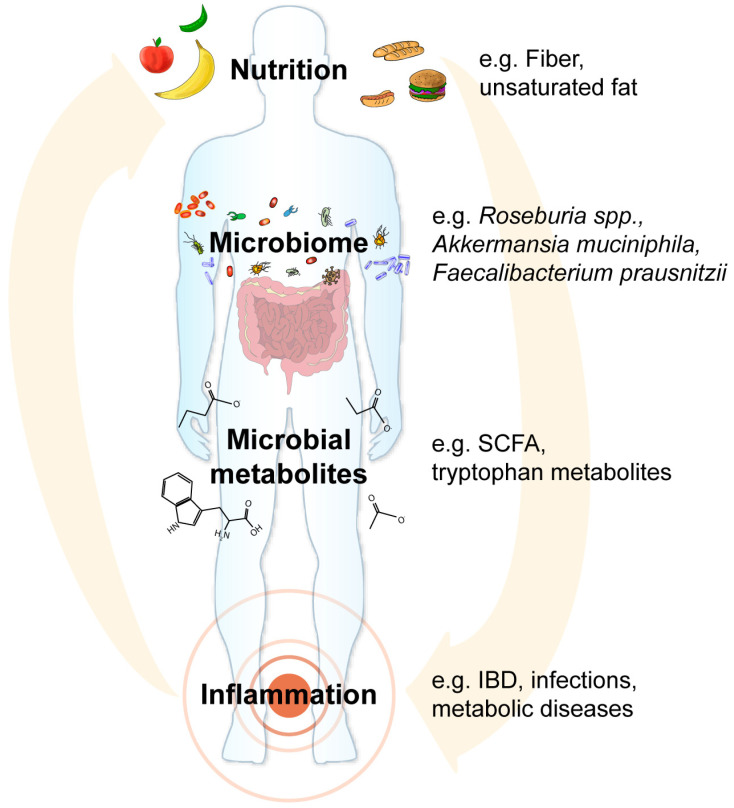Figure 1.
Concept of microbiome-directed nutritional interventions to treat malnutrition and chronic inflammation. Nutrition directly impacts the pathogenesis of malnutrition and inflammation, for example by fueling host metabolism. However, nutrition is also a main environmental factor shaping the composition and function of the microbiome. Detrimental microbiome alterations such as the loss of beneficial bacteria (for example Akkermansia muciniphila, Faecalibacterium prausnitzii, Roseburia spp.), which produce and supply short-chain fatty acids (SCFAs) and vitamins, or the expansion of pathobionts (for example Proteobacteria), which may cause infections in susceptible hosts, could also boost disease pathogenesis or might cause resistance to therapy approaches. In addition, microbial metabolites such as the SCFA butyrate or tryptophan metabolites control various physiological functions in the host ranging from inflammatory responses to the energy metabolism of epithelial cells. Therefore, microbiome-directed and personalized therapy approaches promise to improve treatment efficacy for malnutrition and chronic inflammation, for example inflammatory bowel disease (IBD).

